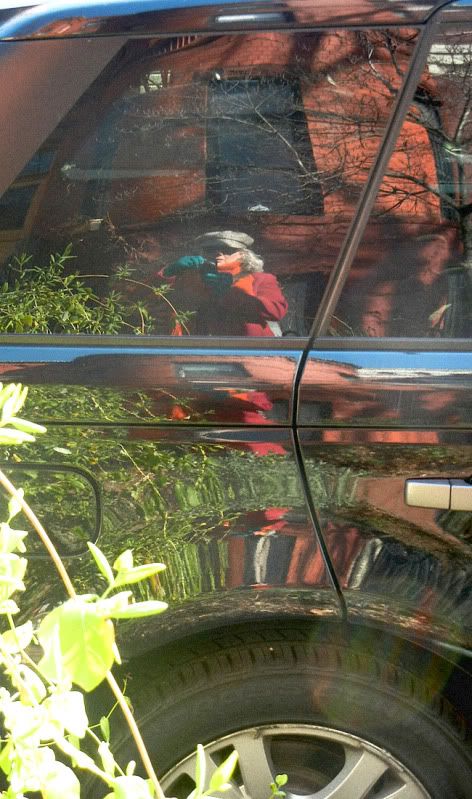
Whether you think you want to or not, you are now in the process of merging with technology. You, me and pretty much everyone else in the "developed" world, should say.
The physical impact of spending so many many hours staring at screens (small and large) as opposed to interacting with the "real" world has not yet been fully assessed. Physically we are heavier and weaker than ever in our species' history. Psychologically and spiritually, too, we are experiencing rapid change but it's still too early to say how this will change us.
Those who romantically yearn for a time before we were merging with technology will have to look further back in time than perhaps they would like. The truth is, we have been headed in this direction for a long time. I think it began when we learned how to build. We took up the hammer or blade, looked around, and made use of the landscape. Coming indoors all those aeons ago as we taught ourselves to build tipis, yurts, huts, sheds and barns brought us into a more or less controlled environment, cone shaped, round or cubical. When we began living indoors, it changed not only the things we thought about, but the way we thought. Our neural networks shifted to accommodate more hours of safety and comfort. Once we were safe, we spent more time wondering than ever before, about the world and our place within it. I believe it is when we began to live indoors that we fell so in love with the idea of a rational, sensible world.
When we're indoors, the edges of our environment are just a few feet away. Even in the largest palaces we can see the horizons of our landscapes. That makes us feel bigger, more powerful. When we came indoors, we stopped thinking of ourselves as a part of the natural environment. At that point we began to believe we were somehow above or beyond "nature." That stage of development wasn't exactly great for our species or what we call "nature."
John Perry Barlow, pre-smartphones, defined cyberspace as like “the place you go when you're on the phone." I've been thinking about that a lot, about how we have created a brand new kind of shelter, the interior tipi of cyberspace. The way we think now about connections, friendships, and relationships is in a state of revolution. These days we gather in huge collectives with those we know and those we've never met - inside our minds. The rooms of cyberspace are huge, big enough to accommodate literally millions all at once. Billions? It's a lot! This is a huge shift. I wonder every day what this is doing to our neural networks. Don't you?
I feel very lucky to partake of this evolutionary jump with all of y'all here in the timeless wormhole of space we have co-created. Cheers!


7 comments:
I think our neural networks can expand to billions and beyond. Our neural anatomy is a wondrous and capable far beyond our imagination! I love this leap too!
I'm reading a book called "The Technologists." Once again we "touch point," Reya.
I'm just happy that nature continues to exist. It will always be my favorite world. But the places technology has taken us are absolutely fantastic.
I feel lucky too, though you know I have reservations about our infatuation with technology. :)
our bodies are a form of technology . . . steven
It's a paradox - through smaller and smaller instruments (boxes that, like buildings, "contain" us) we spread out ever wider. I sit here at my computer and communicate with you, a woman I've never met but feel I've met. Our words and thoughts travel farther and connect with others at greater speeds, making our communities both greater and smaller (in it's-a-small-small-world way). I hope someone is doing neural network studies of contemporary brains.
Pauline, you and I definitely know each other! And yes I'm sure many neuroscientists are on it. So wonderful.
Post a Comment